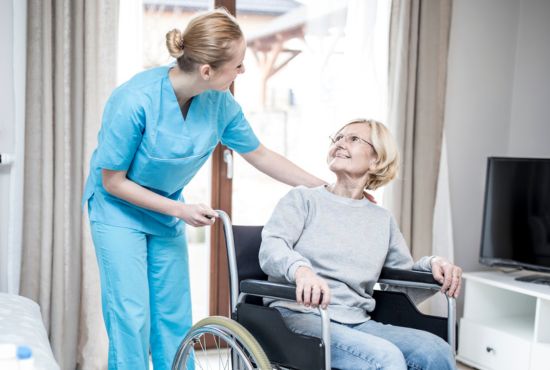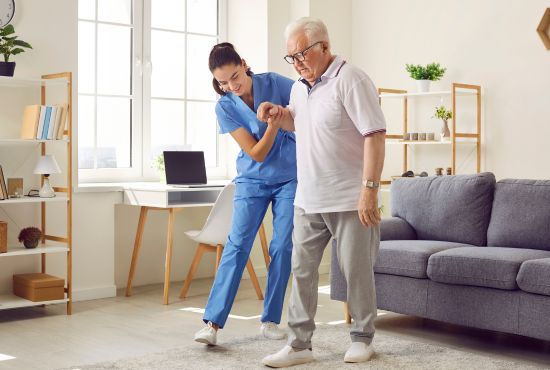What people say
The staffs are Unicare are very delightful , with such a willing and helpful personality. Thanks Unicare
Unicare Client
0208 239 6877
download now

Learn more about our companions and carers
Here’s what our clients say about Unicare Live-in Care
Call us on 0208 239 6877 or request a call back

The primary role of a live-in carer is to enable the person requiring care to continue to enjoy a secure, comfortable and independent life within the familiar surroundings of their own home. The individual services provided by a live-in carer will vary in accordance with the day-to-day needs of the person requiring care; this is the beauty of one-to-one care at home; there are no imposed routines.
Attempting to care for a loved one who is living with dementia can be demanding, tiring and frustrating. A live-in carer can provide the specialist care and assistance required to look after a person with dementia, providing them with the companionship and routine needed to maintain wellbeing whilst preserving their dignity and independence. Among the ways in which a live-in carer may help a person with dementia are bathing and personal care, assistance with mobility and taking care of medication and nutritional needs.
Dementia is not a normal part of ageing and as such, dementia care requires a very special skill set which is outside of regular elderly or non dementia caring. Being able to see the world from the perspective of the person with dementia, to establish a common language, proactively make use of older memories, understand behavioural expressions of need, anticipate and avoid distress in order to promote well being are skills that only the very best carers will have.
To ensure a person’s continued quality of life the personal care duties performed by a live-in carer may include their bathing, washing and dressing, and assisting with their personal and oral hygiene, toileting, and maintenance of their appearance.
Live-in carers must be suitably trained and qualified to manage or administer medications; at Unicare all of our carers undertake this important training as part of their induction.
People living with long-term medical conditions such as dementia, cancer, Parkinson’s disease or Multiple Sclerosis may require expert medical care. A suitably trained and qualified live-in carer can provide specialist care to individuals in the comfort and familiarity of their own home, whilst additionally offering emotional support and reassurance to their family.
Professional live-in carers can even undertake clinical tasks such as managing PEG feeds, blood sugar monitoring, administering oxygen and managing catheters or stomas. These tasks can be clinically delegated by a healthcare professional to a suitably trained professional carer. Our nurse led service for complex care means that all clinical requirements can be overseen by our specialist nurse, Thomas Wilmann, who also provides expertise, guidance and support to clients and their families.
Live-in carers will often liaise with medical professionals, coordinating appointments, sharing important information, reporting changes to symptoms and so on. Observing subtle differences to condition is something that live-in carers are well placed to do due to their close proximity to and knowledge of the person they are caring for.
Live-in carers can carry out a wide range of domestic tasks to enable a person requiring care to relax in a home that is clean, comfortable and secure. The everyday services that a live-in carer might provide include, but are not limited to:
However, please note that these are all ancillary duties over and beyond the primary task of providing personal care and should only be seen as a light touch support service rather than those of a full-time housekeeper, gardener, chef or secretary. We will assess the amount of time our professional carer will have to support these duties, and would recommend that extra cleaning support is arranged alongside our service in most cases.
One of the most important and valued aspects of a live-in carer’s role is the provision of companionship and support. For many people with live-in carers, simply having someone friendly on hand to chat with about their opinions and experiences can improve their happiness and quality of life immeasurably.
In this capacity, a live-in carer can become a trusted companion with whom to enjoy recreational activities such as trips to the cinema, theatre or social club; take short breaks with; play cards or games or share a hobby with. They may simply be someone that the person receiving care may relax and chat with over a cup of tea.


We understand that the cost of care is a major consideration when looking for later life support options, which is why we believe it’s important to help…


The majority of people beyond retirement age wish to live an independent and active life in the comfort of their own home for as long as they possibly can…


Live-in care is fast becoming the preferred choice for those who need extra help to stay at home. Gone are the days when moving into a care home was inevitable…


For anyone requiring support and assistance with their personal care but who wishes to retain an independent lifestyle, hiring a live in carer provides…
The staffs are Unicare are very delightful , with such a willing and helpful personality. Thanks Unicare
Unicare Client
All that is required is a spare room for the carer to have their own space during breaks and to sleep, with a TV for their relaxation and internet access so they are able to complete the records required to manage your care. Your live-in carer will cook your daily meals and eat the same food, with you if you wish.<br><br>The carer will need to have a two-hour break in any 24-hour period, which many clients usually find works best when they are resting in the afternoon. If you require care and support during this period many will have family visit to cover this break, or we can organise for an hourly care provider to cover this for you.
At Unicare, we understand the importance of continuity and consistency of care. However as we are sure you will appreciate, that it is important for our carers own wellbeing to have sufficient time off work and holidays to rest, so that they continue to deliver the highest quality of care that you should expect.<br><br>
You will have a team of two carers who will provide care in your home usually for two weeks at a time, rotating to the next carer after two weeks. Whilst this is a typical rota patten we do offer various patterns, including a four-week working period with two weeks off. A team of the same two carers ensure they really get to know and understand you as a person. If one carer requires a short amount of time off, we will always endeavour for the other carer to provide cover to ensure consistency of care.<br><br>As a fully managed service, however we have a rapid response and relief team of highly trained professional carers who can come to support you during your carer’s holidays and for longer periods of leave. These are always planned and scheduled well in advance and communicated to you and your family so you can be reassured that we can continue to meet your needs.
Unicare provides live-in care to couples. Receiving care in the comfort of the home you have enjoyed together for, what is probably many years with all your memories and possessions around you is fast becoming the preferred choice for couples, as opposed to enduring the upheaval, disruption and emotional upset of moving into a care home. Whether one of you is living with a specialist condition, like dementia or Parkinson’s and the other one just requires mobility or frailty care, or to recover from an operation, we will provide you with a perfectly matched carer who will support you both to live a better quality of life as a couple, but also individually according to your needs, choices and preferences.<br><br>One of the most significant considerations when planning care for a couple, is the cost of care. If a couple moves into a care home, the cost of care is typically double the price of receiving high quality, live-in care at home. With live-in care there is only one weekly fee for the care team, with a small supplement depending on needs, so it is a very cost-effective alternative to moving into a care home.
At Unicare, we know receiving care in the comfort, safety and familiarity of your own home has far reaching benefits in improving overall health and wellbeing for a person living with dementia. Moving at any stage in life can be very stressful, but can negatively impact a person who is living with dementia, which is why many families up and down the country choose live-in care as an alternative to moving into a care home to receive high quality dementia care.<br><br>All our professional carers receive unrivalled training in dementia care before they care and support someone with the condition. Our work with the Contented Dementia Trust to introduce the SPECAL approach to dementia care helps us to understand and discover what is important to the person living with dementia, enabling us to develop a purposeful and meaningful programme of care. Working closely with Dementia UK.
There may be care funding available to you to receive a live-in care service depending on your financial circumstances and your care needs. The Local Authority will only fund care at home (referred to as social funding) if your assets are worth less than £23,500, which we know that sadly for many families their financial situation exceeds.<br><br>If you are assessed and have an identified healthcare need you may be eligible for NHS Continuing Healthcare funding organised by your local Clinical Commissioning Group (CCG) to support you to receive care in your own home.<br><br>Many families are faced with having to fund the care they receive themselves (referred to as self-funding care). For these families there are options to help finance care at home, including a Care Fees Annuity, which is an insurance policy you purchase to cover the cost of your care, or by realising capital in your assets through an Equity Release scheme.
Please complete our short assessment form and one of our specialist team on live-in care will be in touch shortly.














